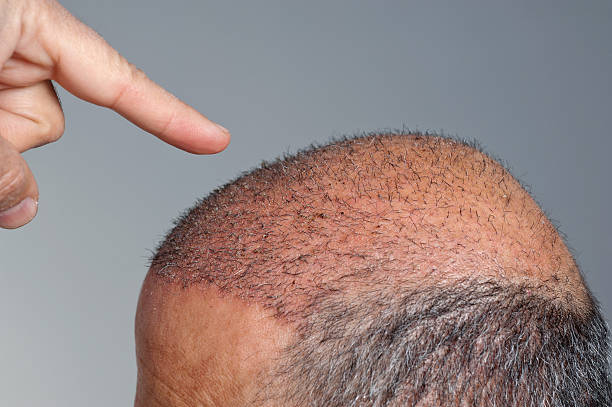Scalp Psoriasis Explained: Symptoms, Causes, and Relief Options
Scalp psoriasis is a chronic skin condition that can cause itching, flaking, and discomfort. In this article, we explore the key symptoms, possible causes, and treatment options that can help manage flare-ups and improve your quality of life without making exaggerated claims.

What are the common symptoms of scalp psoriasis?
Scalp psoriasis manifests in several distinct ways, making it crucial to recognize its symptoms early. The most common signs include:
-
Red, scaly patches on the scalp
-
Intense itching and burning sensations
-
Dry, flaky skin that may resemble dandruff
-
Temporary hair loss in affected areas
-
Bleeding or soreness when scales are removed
These symptoms can range from mild to severe, and may extend beyond the hairline to the forehead, neck, or behind the ears. It’s important to note that scalp psoriasis is not contagious, but its visible nature can cause significant emotional distress for those affected.
What triggers scalp psoriasis flare-ups?
Understanding the triggers of scalp psoriasis is crucial for effective management. While the exact cause remains unknown, several factors have been identified as potential triggers:
-
Stress: Emotional stress is a common trigger for psoriasis flare-ups.
-
Skin injuries: Cuts, scrapes, or sunburns can initiate new psoriasis patches.
-
Infections: Strep throat and other infections may trigger or worsen symptoms.
-
Cold weather: Dry, cold conditions can exacerbate scalp psoriasis.
-
Certain medications: Some drugs, including lithium and beta-blockers, may trigger flares.
-
Alcohol and smoking: These habits can increase the risk and severity of psoriasis.
Identifying personal triggers can help individuals better manage their condition and reduce the frequency of flare-ups.
How can you manage scalp psoriasis flare-ups at home?
While professional treatment is often necessary, there are several steps you can take at home to manage scalp psoriasis:
-
Use medicated shampoos: Over-the-counter shampoos containing salicylic acid or coal tar can help reduce scaling and itching.
-
Apply moisturizers: Keep your scalp hydrated with fragrance-free moisturizers to reduce dryness and flaking.
-
Try natural remedies: Some people find relief with aloe vera, tea tree oil, or apple cider vinegar (diluted).
-
Avoid scratching: Although tempting, scratching can worsen symptoms and lead to infection.
-
Use a humidifier: Adding moisture to the air can help prevent dry skin and reduce itching.
Remember, while these home remedies can provide relief, they should not replace professional medical advice and treatment.
What daily care routines are recommended for scalp psoriasis?
Establishing a consistent daily care routine is essential for managing scalp psoriasis effectively:
-
Gentle cleansing: Use lukewarm water and mild, fragrance-free shampoos to avoid irritation.
-
Careful drying: Pat your hair and scalp gently with a soft towel instead of rubbing.
-
Moisturize regularly: Apply a scalp-friendly moisturizer daily to keep the skin hydrated.
-
Limit heat styling: Excessive heat can irritate the scalp, so minimize the use of hair dryers and styling tools.
-
Stress management: Incorporate stress-reduction techniques like meditation or yoga into your daily routine.
Consistency is key when it comes to managing scalp psoriasis, so try to stick to your routine even when symptoms improve.
How do different scalp psoriasis treatments compare in effectiveness and cost?
Treatment options for scalp psoriasis vary in effectiveness and cost. Here’s a comparison of some common treatments:
| Treatment | Effectiveness | Estimated Cost | Key Features |
|---|---|---|---|
| Topical corticosteroids | High | $10-$50 per month | Reduces inflammation and itching |
| Coal tar shampoos | Moderate | $5-$20 per bottle | Slows cell growth and reduces scaling |
| Light therapy | High | $100-$300 per session | Uses UV light to slow skin cell growth |
| Biologics | Very High | $10,000-$30,000 per year | Targets specific parts of the immune system |
| Systemic medications | High | $500-$3,000 per month | Oral or injected drugs for severe cases |
Prices, rates, or cost estimates mentioned in this article are based on the latest available information but may change over time. Independent research is advised before making financial decisions.
It’s important to note that effectiveness can vary from person to person, and what works for one individual may not work for another. Always consult with a dermatologist to determine the best treatment plan for your specific case.
What are the latest advancements in scalp psoriasis treatment?
Recent advancements in scalp psoriasis treatment have focused on targeted therapies and improved delivery methods:
-
New biologics: Newer biological drugs target specific components of the immune system, offering more precise treatment with fewer side effects.
-
Improved topical formulations: Enhanced vehicles for topical medications allow for better penetration and efficacy on the scalp.
-
Combination therapies: Dermatologists are finding success in combining different treatment modalities for better results.
-
Personalized medicine: Genetic testing is being explored to tailor treatments to individual patients’ genetic profiles.
-
Light therapy innovations: New, more targeted forms of phototherapy are being developed for scalp psoriasis.
These advancements offer hope for more effective management of scalp psoriasis, potentially improving quality of life for those affected by this chronic condition.
In conclusion, scalp psoriasis is a complex condition that requires a multifaceted approach to management. By understanding the symptoms, identifying triggers, and exploring various treatment options, individuals can work with their healthcare providers to develop an effective strategy for controlling flare-ups and maintaining scalp health. With ongoing research and advancements in treatment, the outlook for those living with scalp psoriasis continues to improve.
This article is for informational purposes only and should not be considered medical advice. Please consult a qualified healthcare professional for personalized guidance and treatment.




